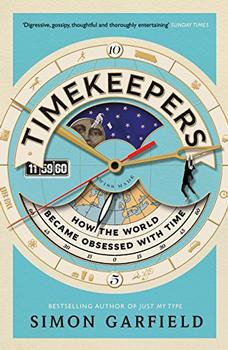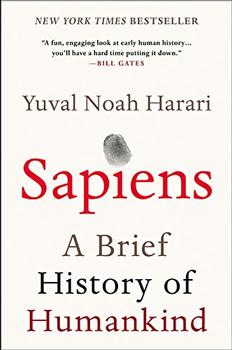Summary | Excerpt | Reviews | Beyond the book | Read-Alikes | Genres & Themes | Author Bio

A Natural and Cultural History
by Cynthia BarnettThere's a good reason that the quest for life begins with a search for water. After all, it provides basic sustenance and lays the groundwork for growth. But while scientists have discovered evidence of water on Mars and Venus, its mere existence has not been enough. Enter, rain. "What's exceptional about our blue marble is not that we had water. It's that we held on to it, and that we still do. While the ancient oceans of Venus and Mars vaporized into space, Earth kept its life-giving water," points out science journalist Cynthia Barnett in her lively and informative account, Rain: A Natural and Cultural History. Rain is the principal way we "keep our life-giving water." Yet as California wrestles with the worst drought it has had in nearly 1,200 years, and as rain becomes increasingly scarce, one has to wonder: Are we doomed to become another Venus or Mars?
Things are nowhere near that dire of course, and Barnett's sociological, cultural and scientific account of rain has a high impact because it couches its punches well. Barnett addresses the elephant in the room – climate change – but places it well against the larger discussion of her book's primary subject, rain. And while Barnett sounds a few warnings: "Those who dismiss climate science in the twenty-first century are in danger of repeating the mistakes of the Brits who called ship-forecasting black magic in a time when shipwrecks took the lives of thousands of sailors," she also harbors what some might call a naive optimism about the ability of our political system to bring about change: "The history of rain offers hope that our political system is capable of overcoming these private interests and our divisions to work together on climate."
Rain: A Natural And Cultural History explores various fascinating facts about its subject and provides lively sounding boards for further research. Did you know, for example, that despite its soggy reputation, Seattle gets less rain than quite a few other cities including Boston? We get a peek at a diverse range of related topics: from the monsoons in South Asia, to the origins of meteorology and Cleveland Abbe's scientific "probabilities" forecasts (see Beyond the Book); from the discussion of how rain is woven into world theologies, to how the Weather Channel came to be one of the most profitable endeavors in television (after much tinkering, the successful formula was boiled down to its essence: They got out in the rain while viewers stayed dry on their living room couches); from how rain shaped clothing (the history of the Mackintosh raincoat), to rain-making techniques.
 The most effective sections of Rain are the travelogues — when Barnett lingers on the page, traveling to Kanauj, the attar (plant-based perfumes) capital of India, where artisans capture the scent of rain in a bottle; and to Cheerapunji, the wettest place on earth: "The worldwide rainfall records are set in the northeast corner of India in the state of Meghalaya overlooking the Bay of Bengal. In 1860, a village there called Cherrapunjee logged the greatest rainfall in recorded history – 1,042 inches in one year. Every rain-obsessed scientist I interviewed seemed to dream of visiting there." Her narrative skills distill nature in all its beauty whether she is scaling the root bridges in Cheerapunjee or the family-owned distilleries in Kanauj.
The most effective sections of Rain are the travelogues — when Barnett lingers on the page, traveling to Kanauj, the attar (plant-based perfumes) capital of India, where artisans capture the scent of rain in a bottle; and to Cheerapunji, the wettest place on earth: "The worldwide rainfall records are set in the northeast corner of India in the state of Meghalaya overlooking the Bay of Bengal. In 1860, a village there called Cherrapunjee logged the greatest rainfall in recorded history – 1,042 inches in one year. Every rain-obsessed scientist I interviewed seemed to dream of visiting there." Her narrative skills distill nature in all its beauty whether she is scaling the root bridges in Cheerapunjee or the family-owned distilleries in Kanauj.
Some other chapters (especially the one devoted to the role of rain in art) feel less sure-footed. And I would have loved some deeper exploration into a whole host of topics she teases us with: the role of the wagasa, the umbrella, in Japan's feudal times, and the use of rain-making machines in the movies, are just two examples. As it stands, Rain: A Natural and Cultural History visits a spectacular variety of topics related to its subject, but some are more exhaustively explored than others.
Barnett delivers an endlessly whimsical and engaging narrative tour of rain through life's many lenses. It is a testament to her writing ability that the reader will be left wanting more — a consistently drenching information soak instead of mere drizzle in places.
Cherrapunjee Root Bridge, courtesy of AudioCompass
![]() This review was originally published in The BookBrowse Review in April 2015, and has been updated for the
April 2016 edition.
Click here to go to this issue.
This review was originally published in The BookBrowse Review in April 2015, and has been updated for the
April 2016 edition.
Click here to go to this issue.

If you liked Rain, try these:

by Simon Garfield
Published 2018
As managing time becomes the greatest challenge we face in our lives, this multi-layered history helps us tackle it in a sparkling new light.

by Yuval Noah Harari
Published 2018
A groundbreaking narrative of humanity's creation and evolution that explores the ways in which biology and history have defined us and enhanced our understanding of what it means to be "human."
Your guide toexceptional books
BookBrowse seeks out and recommends the best in contemporary fiction and nonfiction—books that not only engage and entertain but also deepen our understanding of ourselves and the world around us.